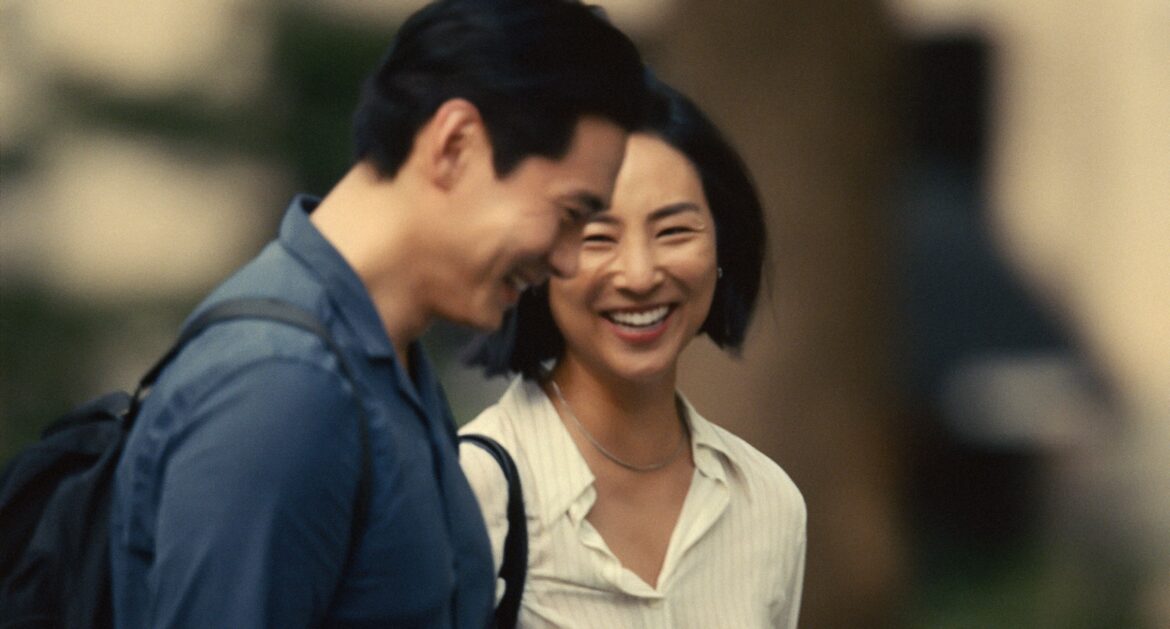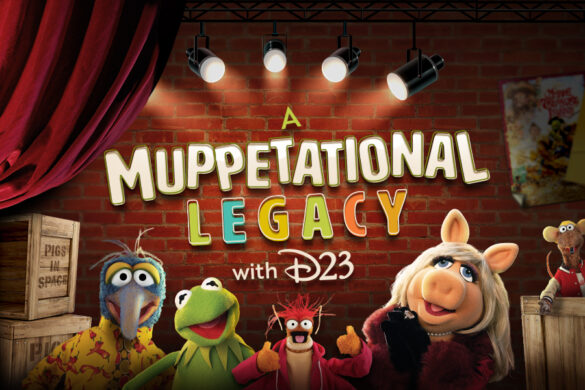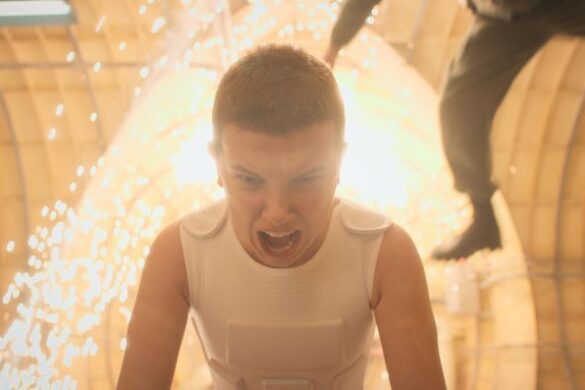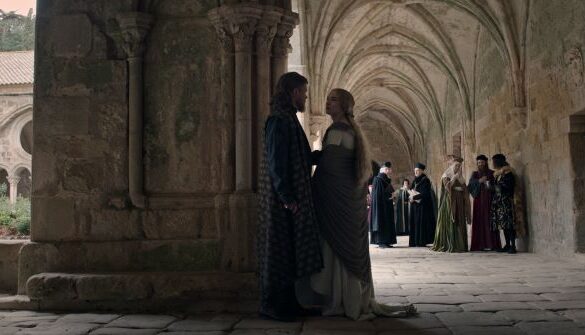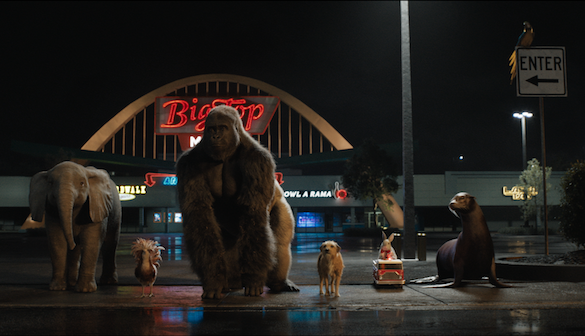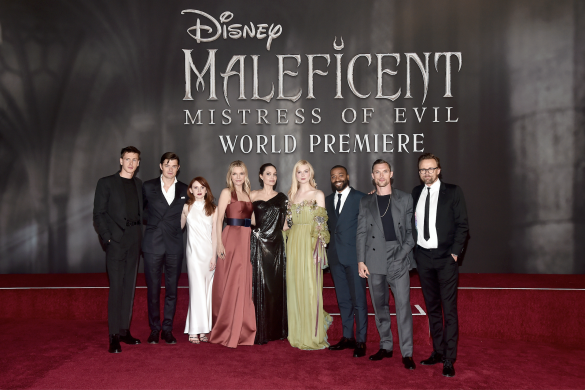Two unseen people engage in an intense play of people watching in a quiet New York bar. They observe these three people sitting across from them and start creating stories, speculating who is who in the relationship and why they are here in the early morning hours. Each story they manifest is more fascinating than the next. As they continue, the camera draws closer to our female lead to reveal that she is central to Celine Song’s “Past Lives.”
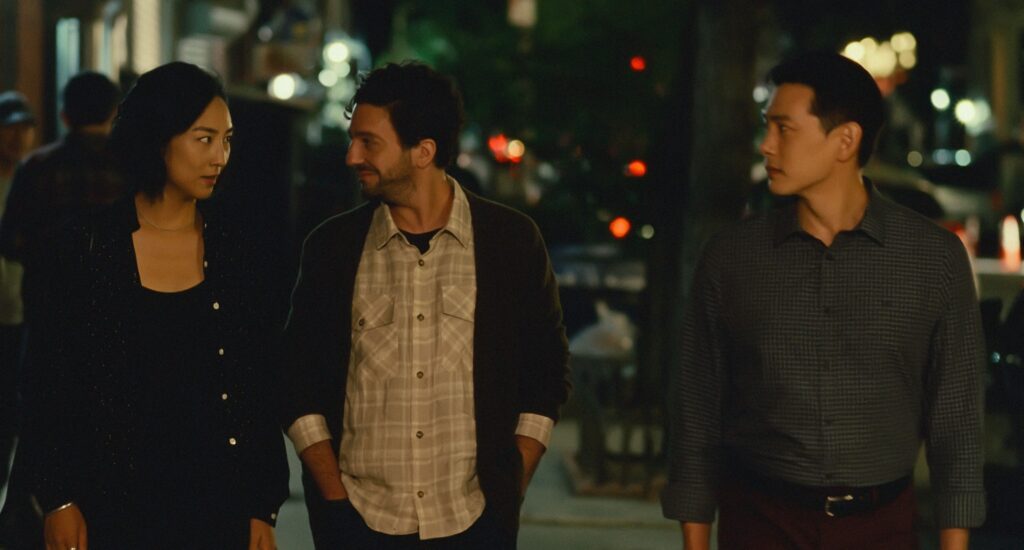
For all the hypotheticals that exist, the paths taken and not taken in this timeline, the ones before it, and the ones that the future holds, “Past Lives” doesn’t romanticize the story of fate between two childhood sweethearts separated by generations and geographical distance. Instead, she takes a more elegant approach by telling a story about love with honesty and grace. So, for one hour and 46 minutes, the film becomes a slow-burning, fully realized exploration of the human condition.
Shortly after the “Past Lives’” opening, Song takes us back 24 years before the present time, where we meet the younger Na Yong (Seung Ah Moon) and Hae Sung (Seung Min Yim), two childhood sweethearts who seem to be destined to be together forever. However, their friendship is defined by their academic competitiveness and innocence, with Na Yong upset whenever she falls behind Hae Sung. But this lovely bond is broken when Na Yong learns her family is about to emigrate to North America. So to make her memories of Korea last forever, Na Yong’s mother takes her on a playdate with Hae Sung. And as this date comes to a close, we see how parting is sweet sorrow when the two go their separate ways on different paths toward their respective homes.
24 years later, Na Yong (Greta Lee), now going by Nora, is an aspiring playwright living in New York who hasn’t given much thought to her past life in Korea, while Hae Sung (Teo Yoo) is serving his compulsory military duty and hasn’t stopped thinking about her. It’s only until Nora converses with her sister about their lives before they emigrate that she becomes curious about her childhood friends. And when she discovers he has been seeking her out through different socials, she reaches out to reconnect.
Nora and Hae’s friendship starts anew, and it’s a beautiful display of reconnection through modern technology. Of course, their Skype connections may lag, and their conversations may not be attractive to an outsider. Still, to them, it has the potential to become something more. We learn that while Hae’s life as a student studying engineering seems ordinary, the ambitious Nora has acclimated to her new life and moving forward to living out her dream. But she feels the virtual reunion is becoming a distraction and decides to cut it off before she starts to develop into something serious.
We flash forward to a later time when Nora is now in a writer’s residency tucked away in a quiet part of Montauk, New York. It’s a home away from the hustle and bustle of the larger cities that comes alive through its surrounding environment. The house is bright and comforting, with the many doors as a metaphor for the choices before her.
It’s there that Nora meets fellow writer Arthur (John Magaro). The two make an instant connection as he becomes captivated by Nora talking about In-Yun, or providence, when translated into English. The idea is that if two strangers walk by each other in the street and their clothes accidentally brush, that means there have been 8000 years of In-Yun between the two. Of course, the practical Nora jokes that In-Yun is “just something Koreans say to seduce someone.” But was their meeting preordained, or was it more coincidental? Though the film never answers these questions, we see how much Nora has changed since her emigration.
Throughout the film, we see how Nora’s life takes shape in the choices that she’s made. Her rusty Korean and casual dismissal of In-Yun are signs of what she’s left behind and who she used to be. Nora’s mother’s statement about their emigration, “If you leave something behind, you gain something too,” is more prevalent throughout the film. Although, her life as a Korean never left her, as noted by Arthur, who tells her that when she dreams, she is speaking in Korean. At the same time, Nora recognizes how much her Westernized life has changed her when she tells her husband that Hae Sung is “Korean-Korean” – a term of endearment that acknowledges who she has become since emigration.
At the heart of this story is a deep and profound honesty that reflects the world we live in now. Life is a series of choices we make and don’t make, and not all love stories have this over-romanticized fairy tale ending. And Song perfectly captures that through conversation, unspoken events, and a series of moments in time, whether in the quietness of watching foliage rustle as the wind blows or the stillness of a coffee cup.
The conversations between Nora and Hae Song aren’t exactly profound, exemplifying the heartbreak that this story will not end like most films. Instead, they are small exchanges of two childhood friends meeting for the first time in 20 years. Those “woahs” are cute, but beyond that, these two talk about the everyday happenings in work and life. Nothing extraordinary about their conversations or Nora’s tour of New York. And yet, there’s something so profoundly interesting in the stillness of it all.
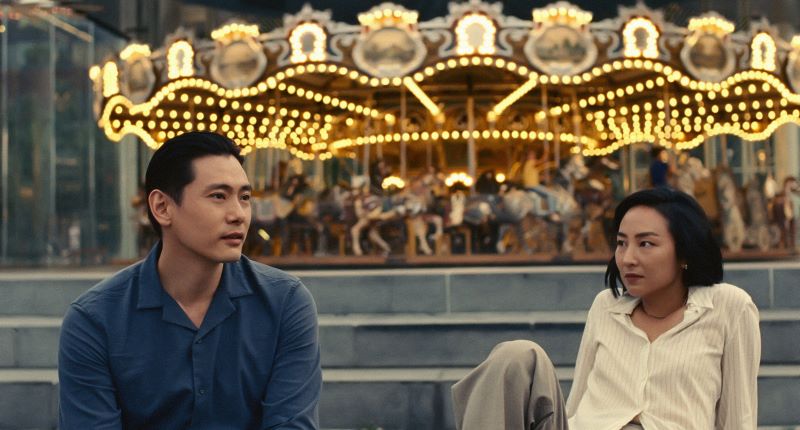
Song wants us to be invested in Nora’s commitment to the choices she made in her life. At no point in time does the film reach a point where it becomes a cliché. Long takes gives us a chance to have an emotional connection with these characters and have a feel for their words. At times, these takes can feel like a lifetime passing by. And Arthur presents a different kind of perspective. Though he has no need to worry or be jealous, Nora’s words about In-Yun affect him. So it’s also a subtle story about a culture clash where he tries to comprehend a world out of his reach. And how she speaks about Hae Song makes him wonder if he was ever the right one for her.
Lee’s performance as Nora is captivating. She knows what she wants out of life and takes some unexpected turns head-on without showing any signs of fear. And yet, she also has vulnerabilities. She is our guide to understanding that this film is about the choices we make and don’t make. Teo has us caring about Hae Song’s journey as someone clutches the memories of his childhood past but understands that this will not end how he thinks. Of course, we would like his character to end up with his sweetheart. But because “Past Lives” is so deeply rooted in honesty, it won’t allow itself to have that storybook ending. It wants to explore the messiness of life and all of its facets. And Magaro’s Arthur, whose fears about Hae Song are painstakingly justified, but he knows that Nora has to meet Hae Song to confirm where she is now as a playwright and wife to Arthur is precisely where she wants to be. Luckily, Song doesn’t pit these two against each other. Instead, we get a poignant exchange between the two that amounts to their version of In-Yun.
Song’s “Past Lives” is a soaring portrayal of life, love, and how our choices shape our identities. The quiet visual storytelling and a trio of gentle performances take us on an existential journey transcending time and space. She reminds us that we don’t have to look back with regret on the choices that we made and didn’t make, but rather accept how all of it shaped who we are now. It’s the kind of film that finds the beauty in discovering how much of our story is shaped by fate and free will.
Past Lives IN LIMITED LA/NY THEATERS ON JUNE 2, 2023
NATIONWIDE ON JUNE 23, 2023

